
Kreuzfahrt von Cairns nach Singapur
vakantio.de/kreuzfahrt-cairns-singapur
24th February 2023 - Bali
प्रकाशित: 24.02.2023
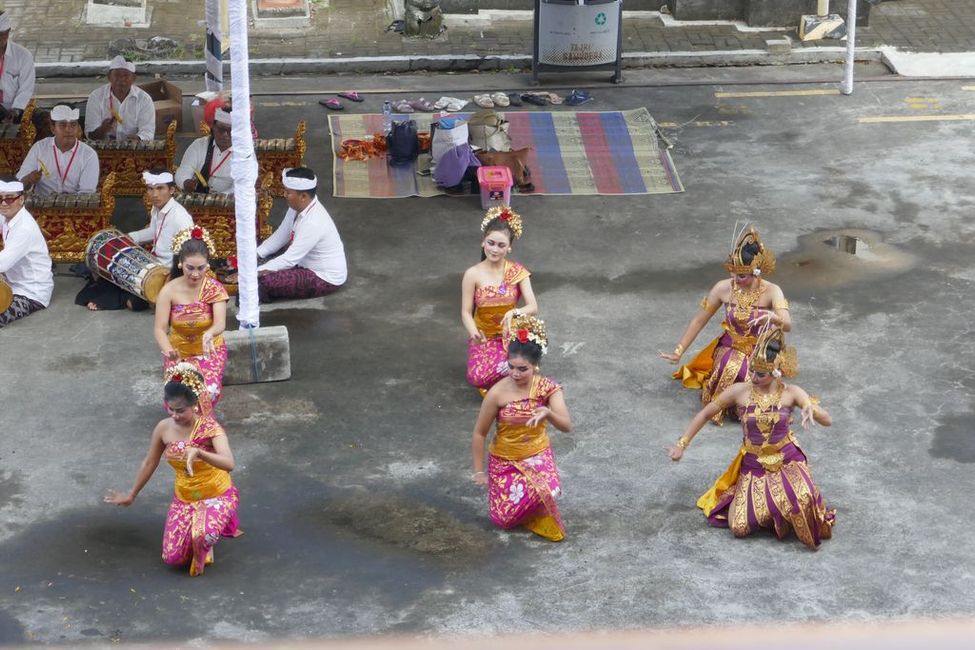
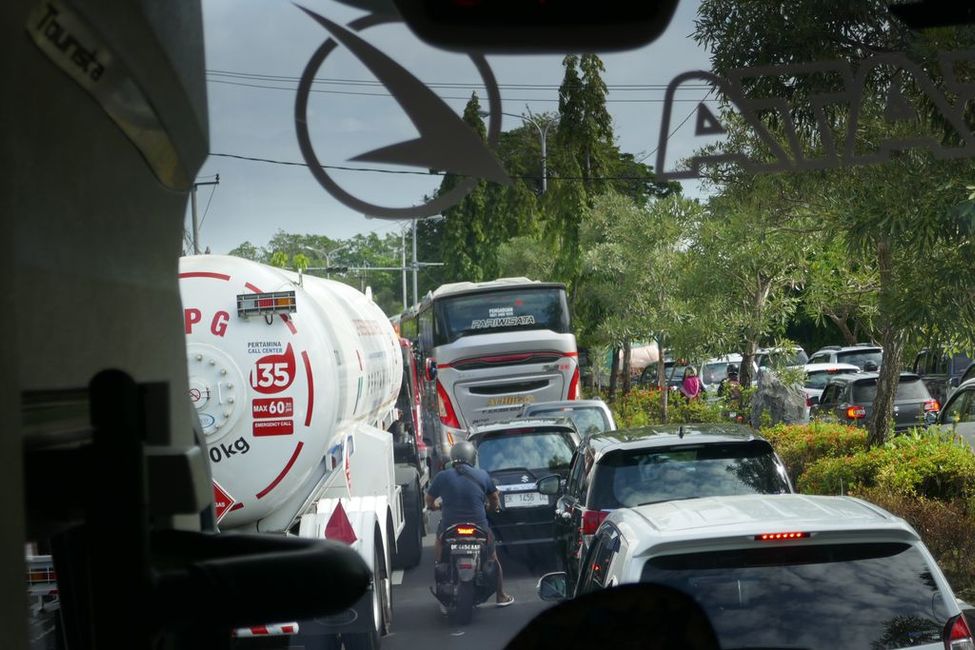
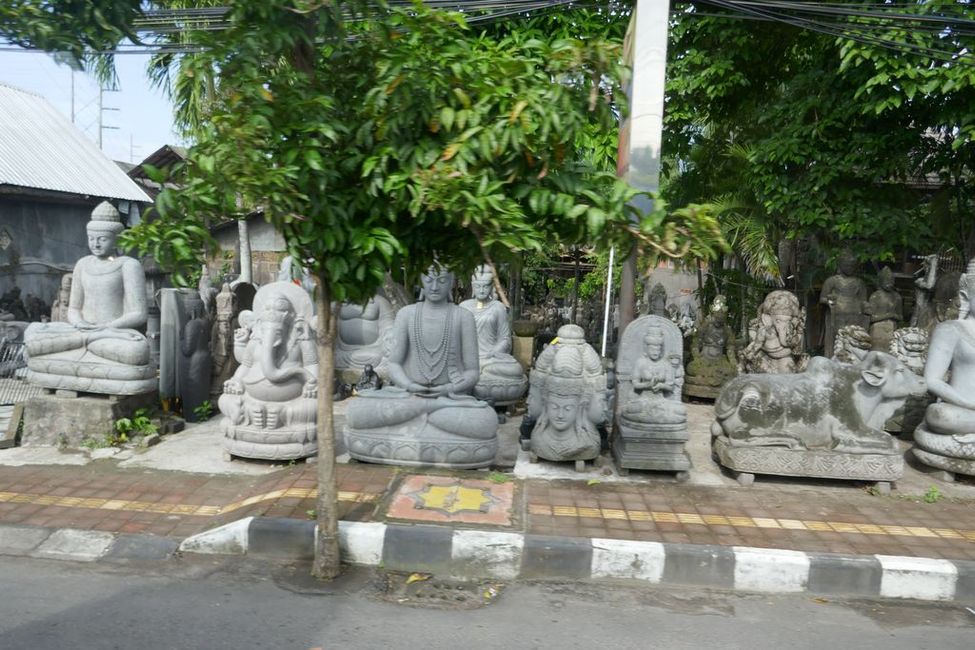
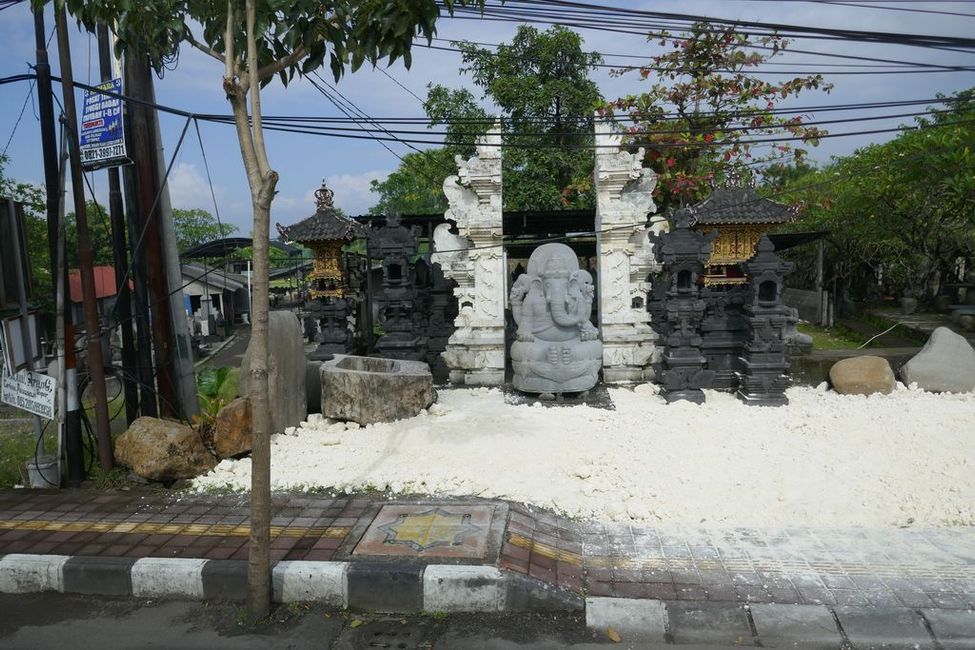
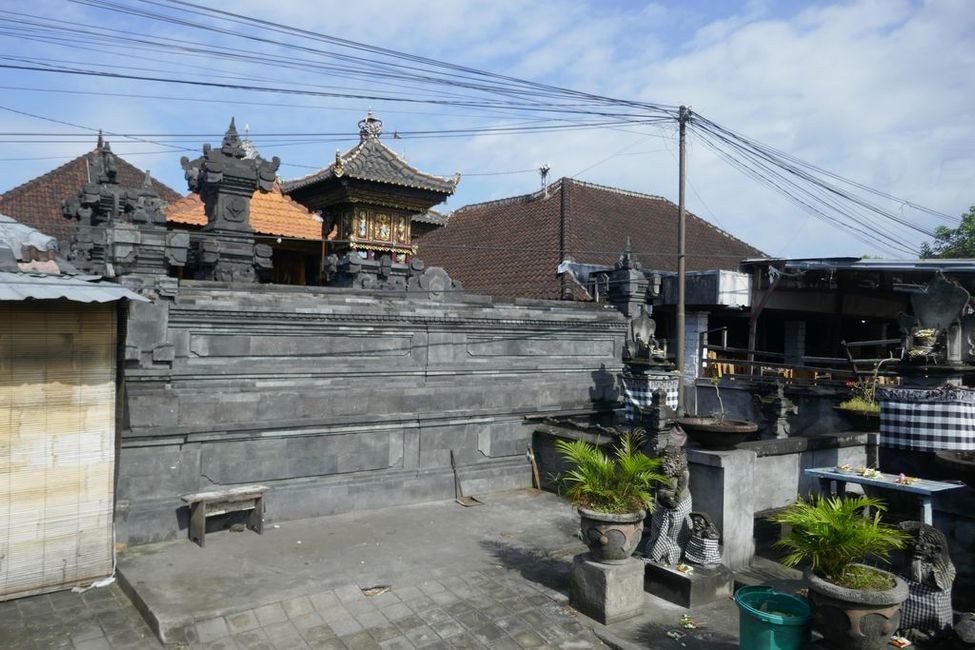
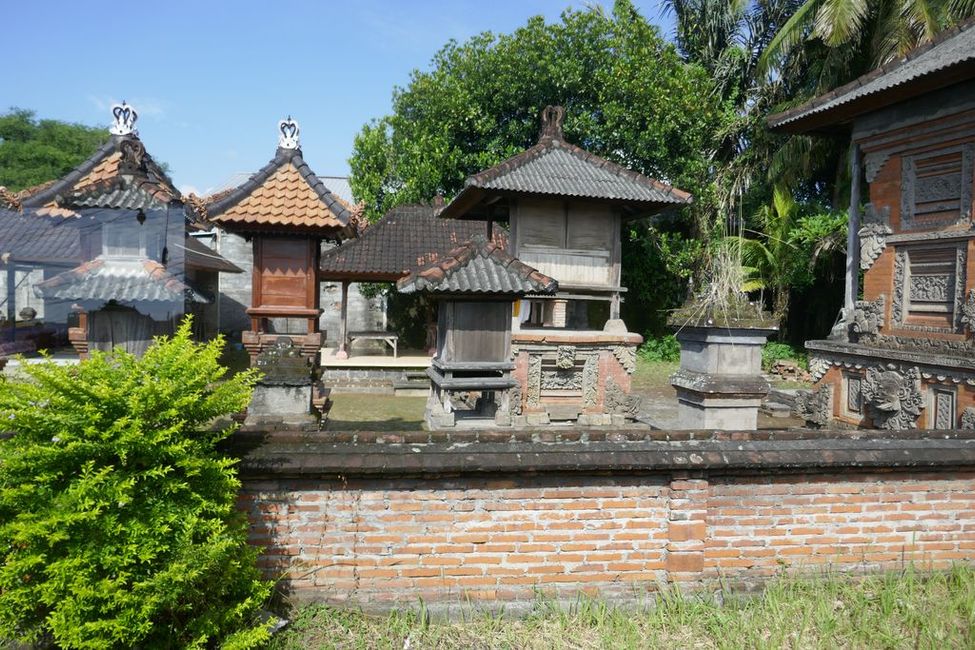
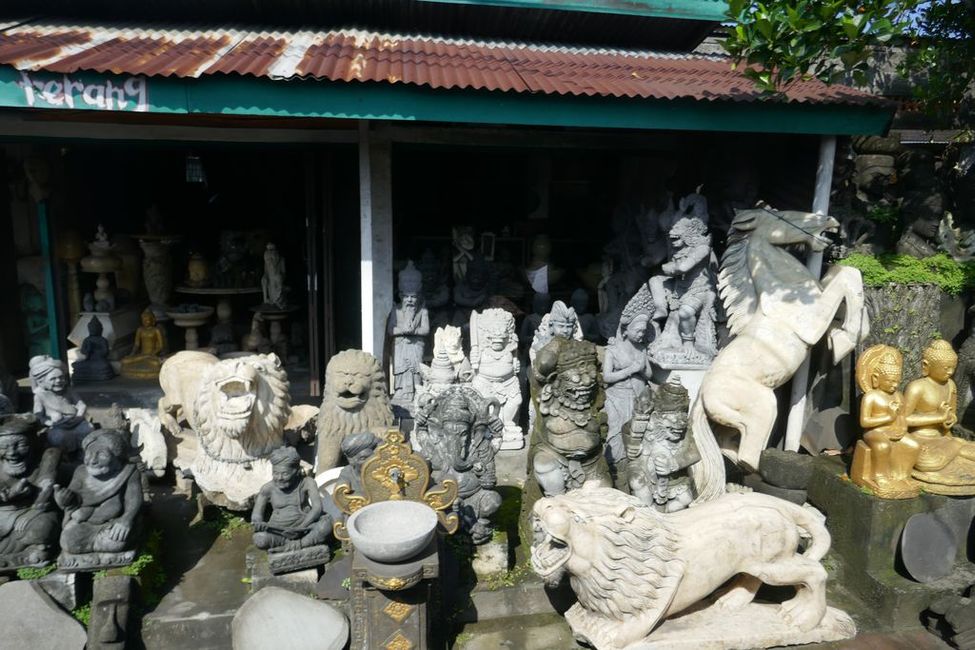
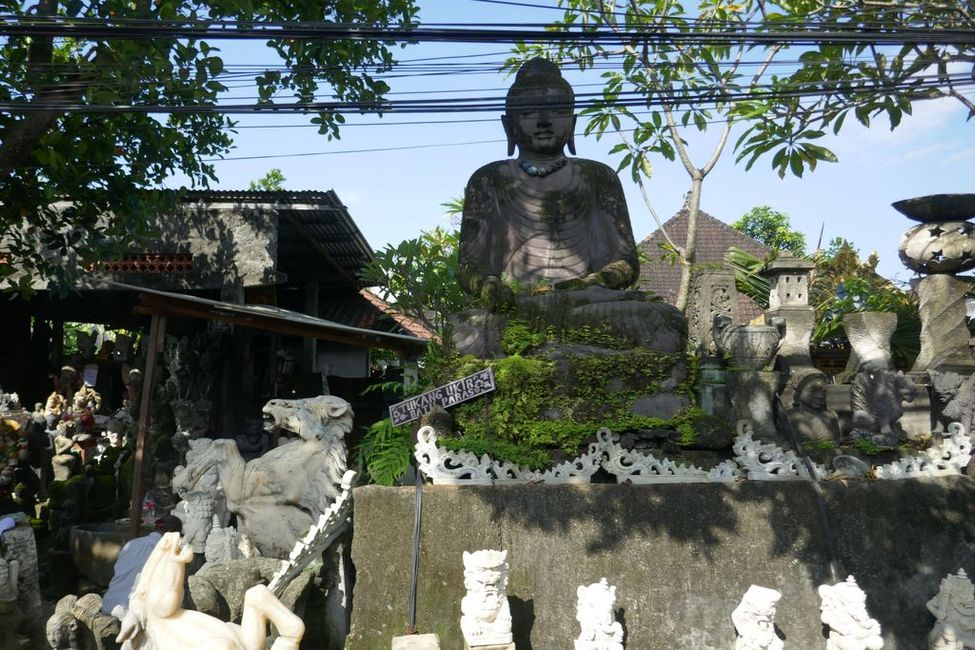
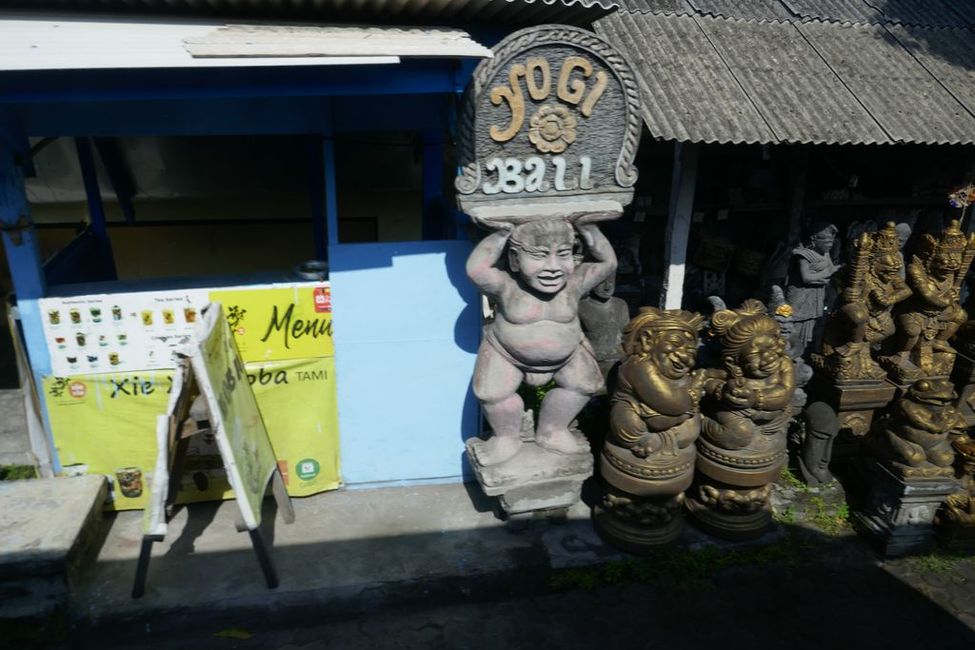
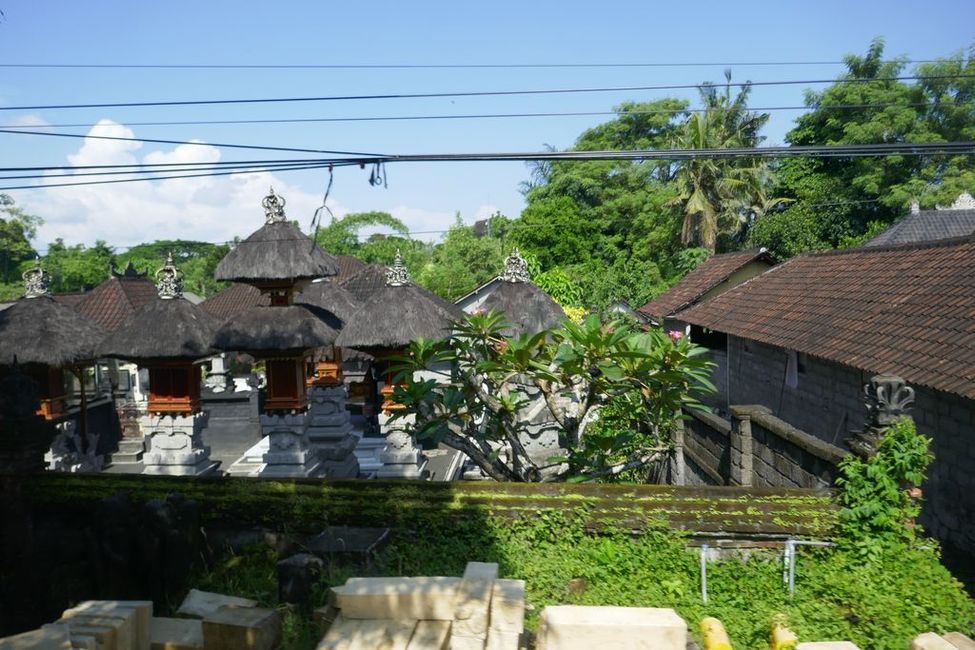
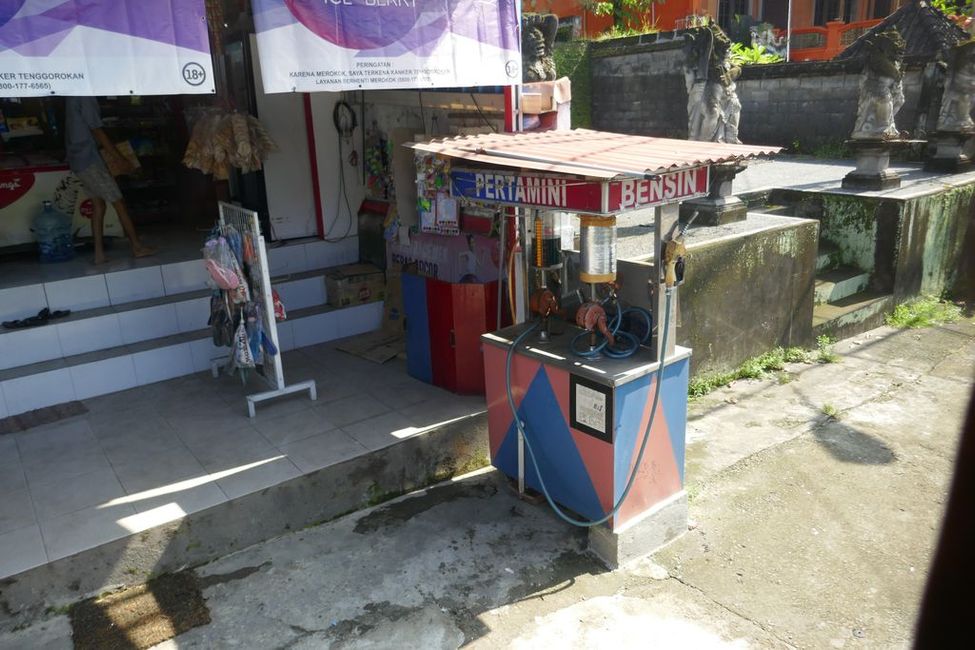
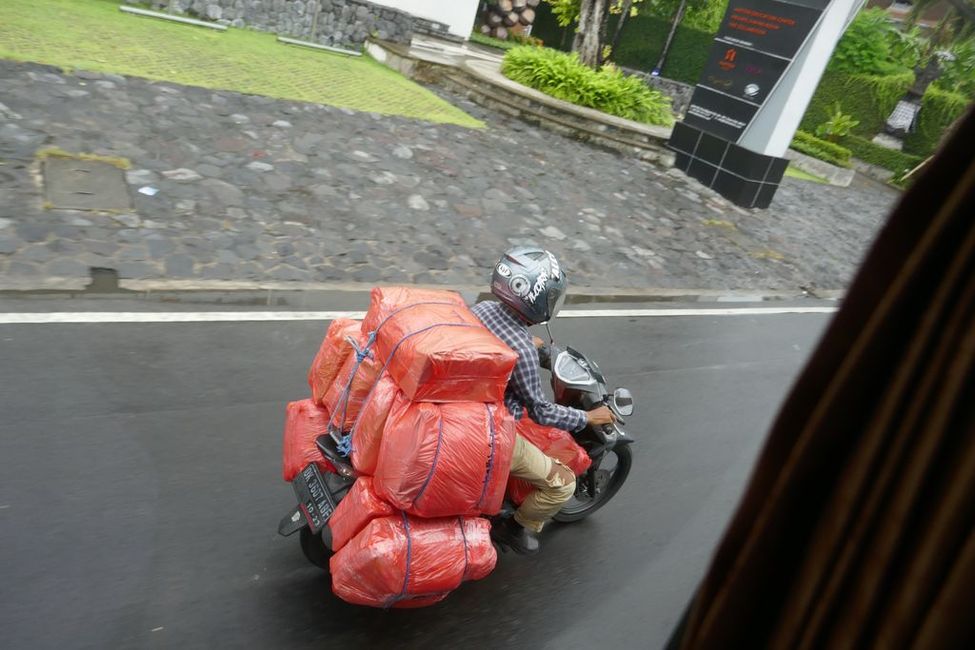
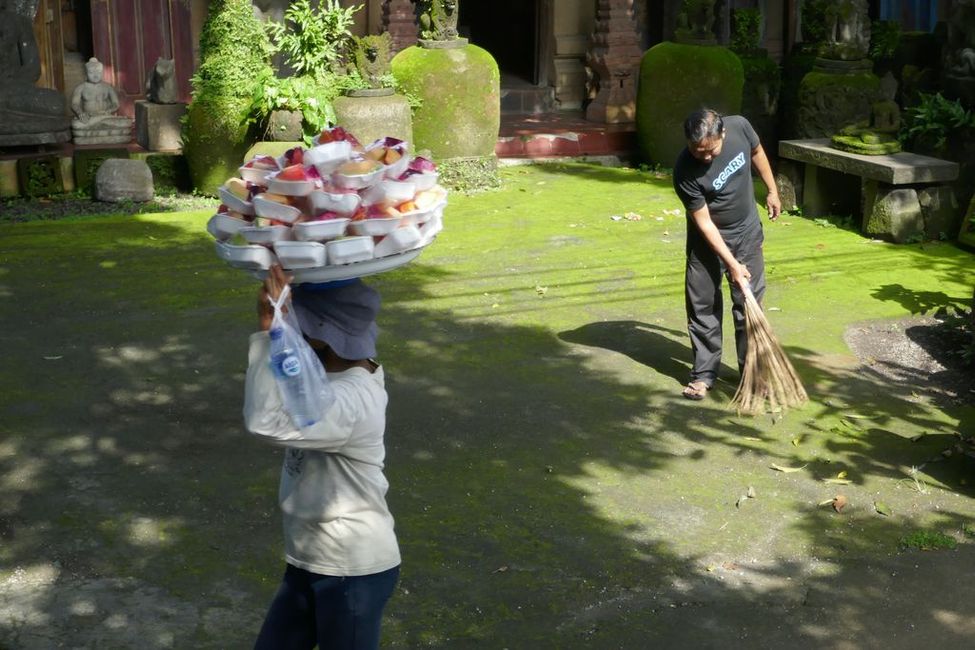
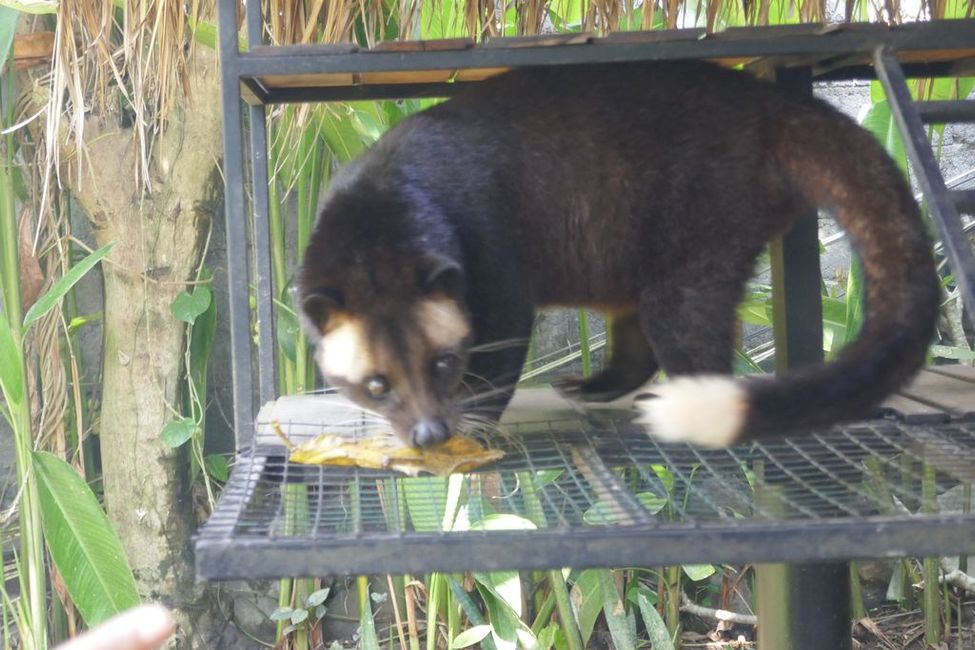
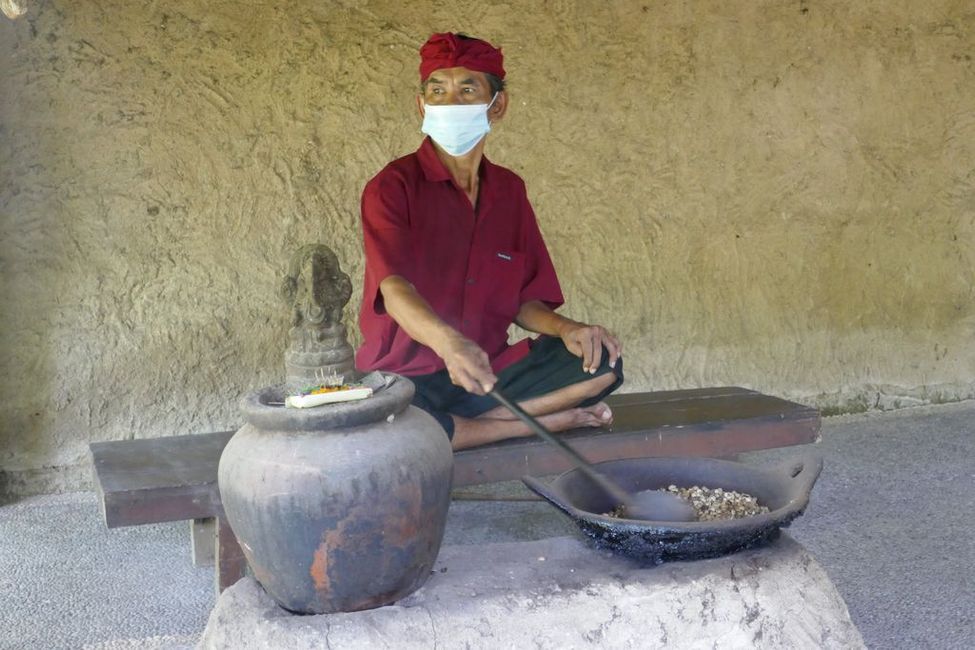
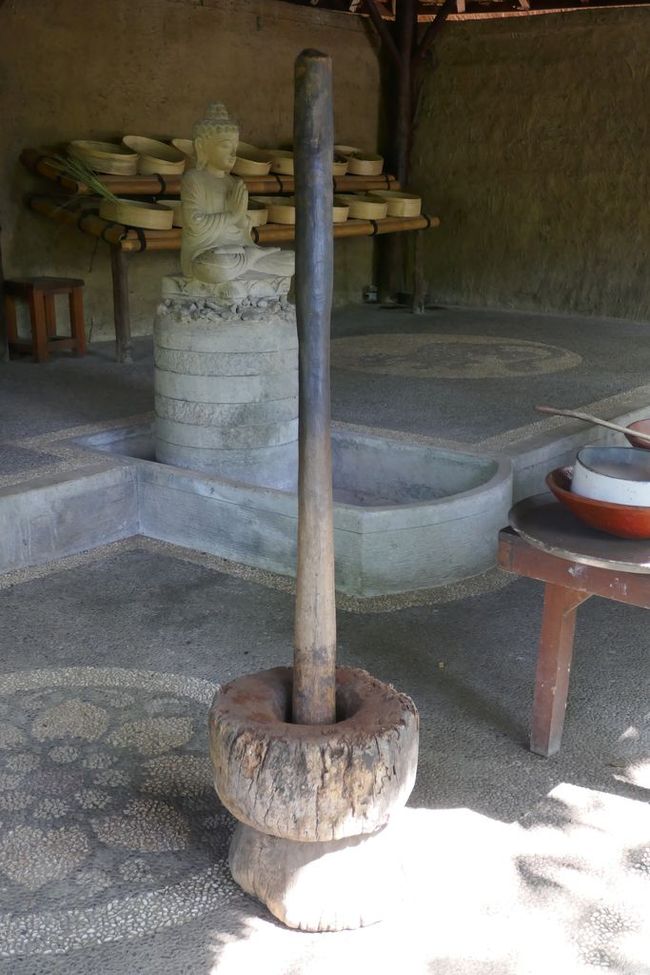
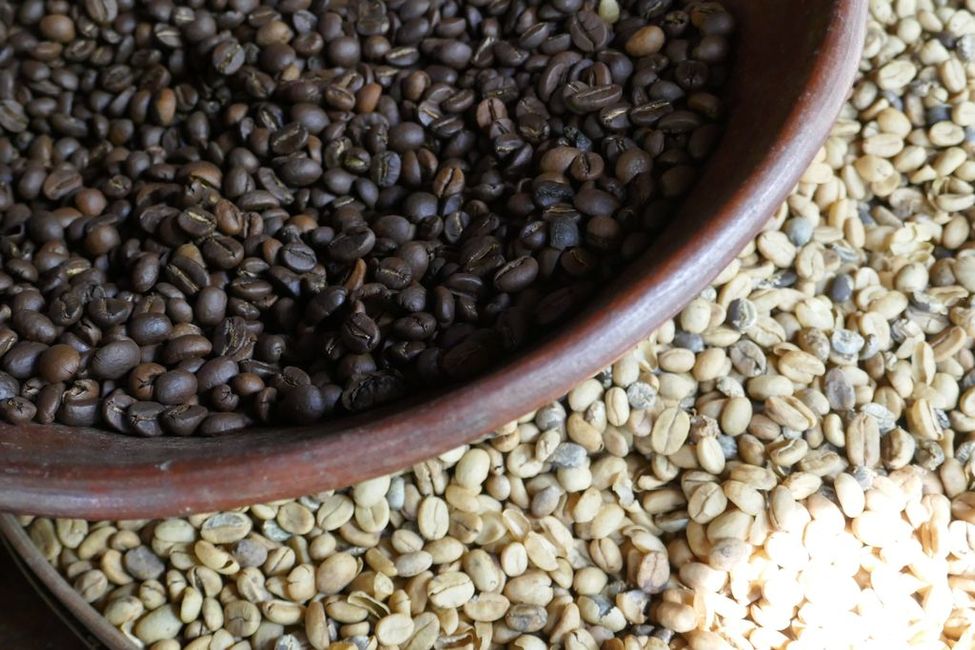
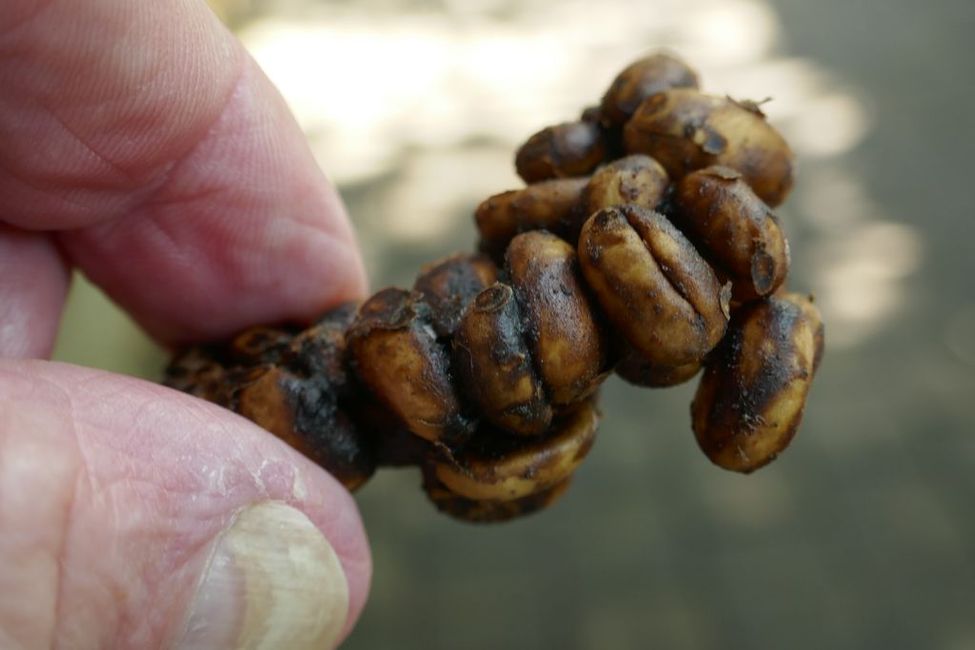
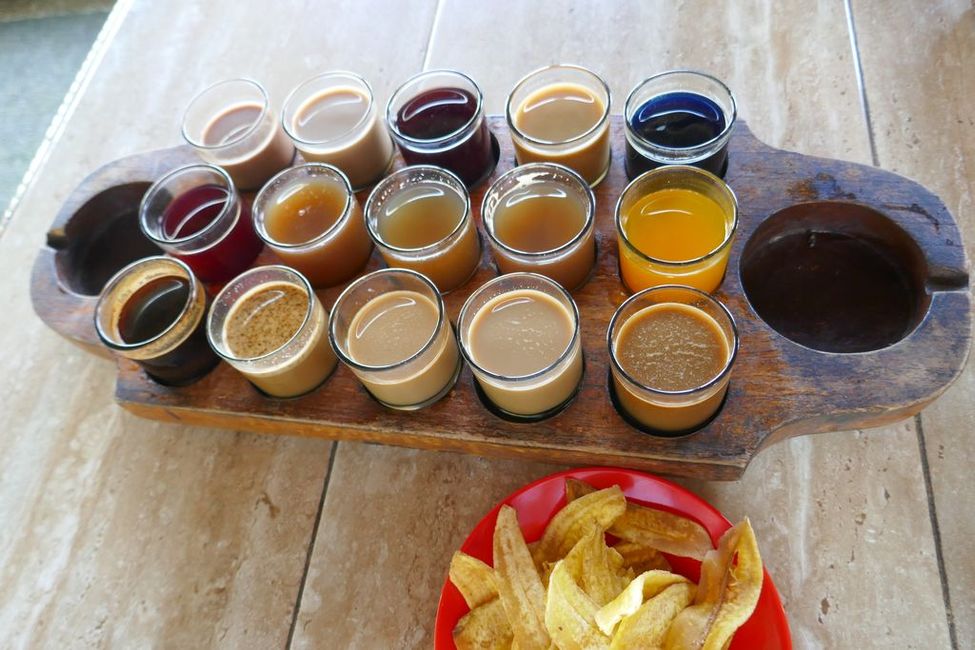
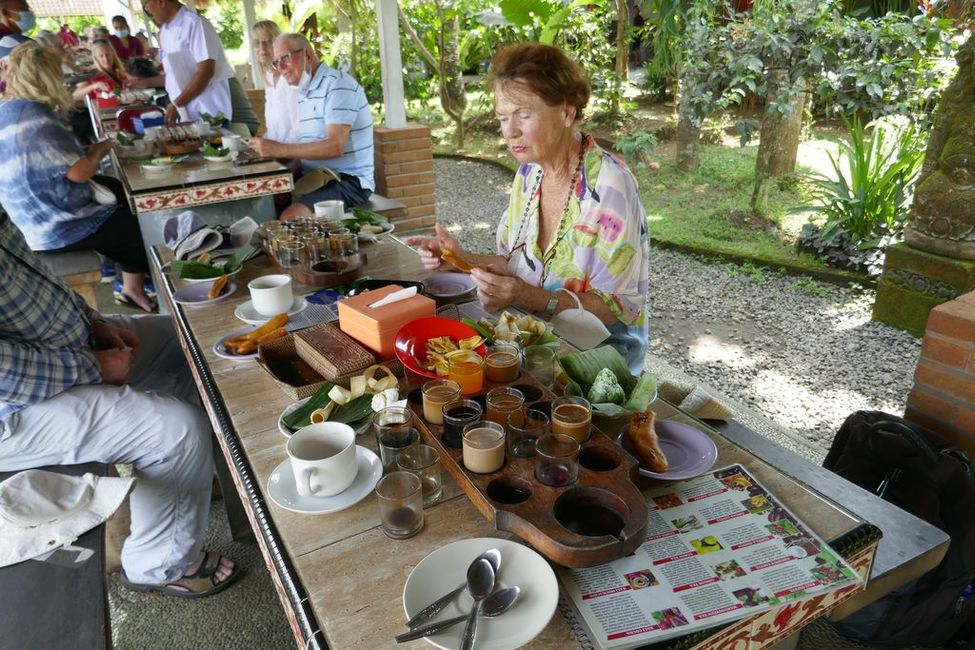
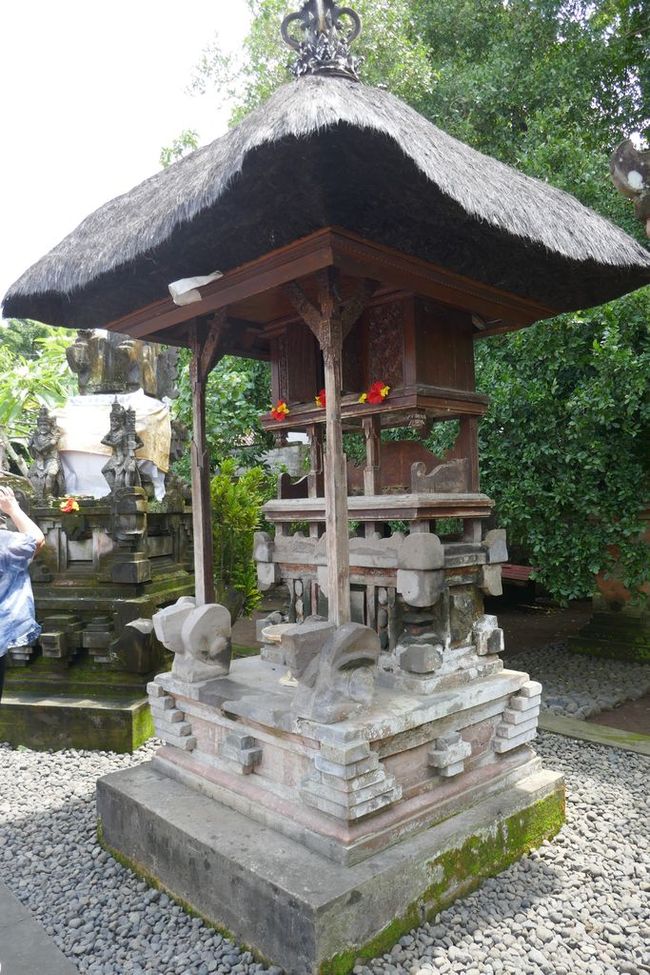
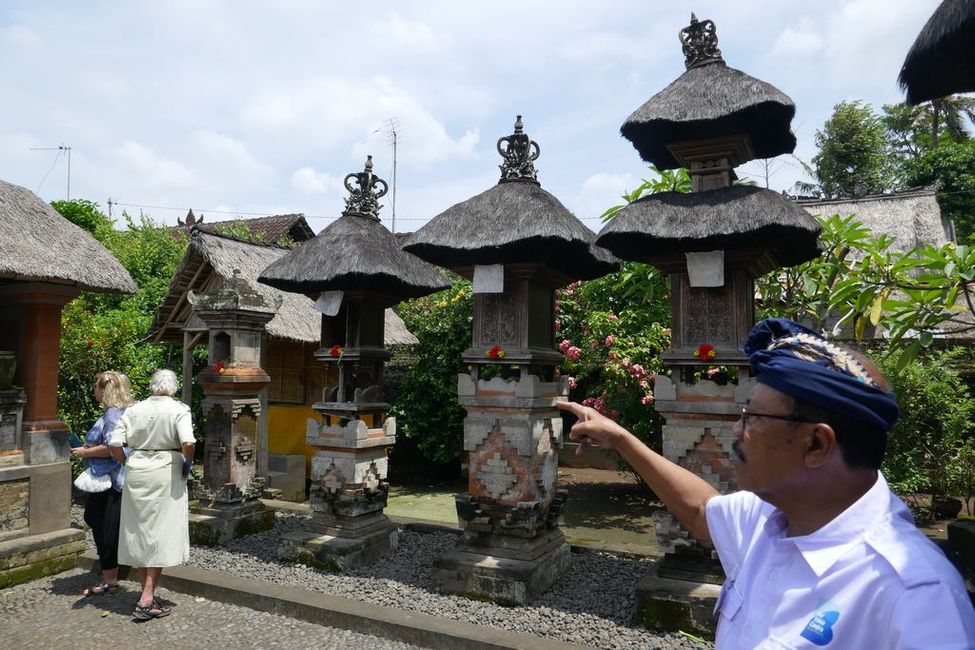
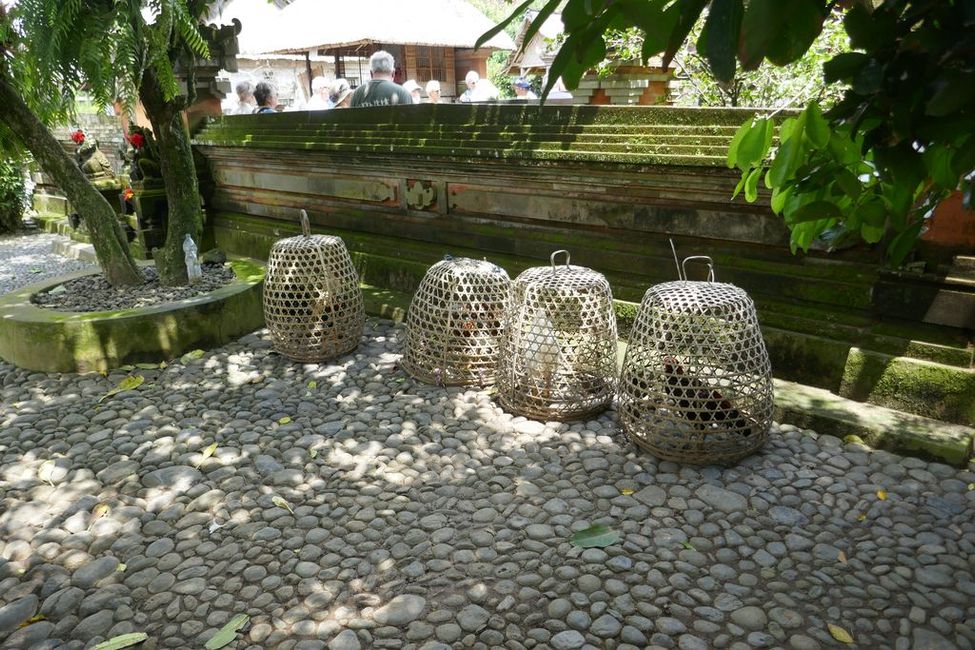
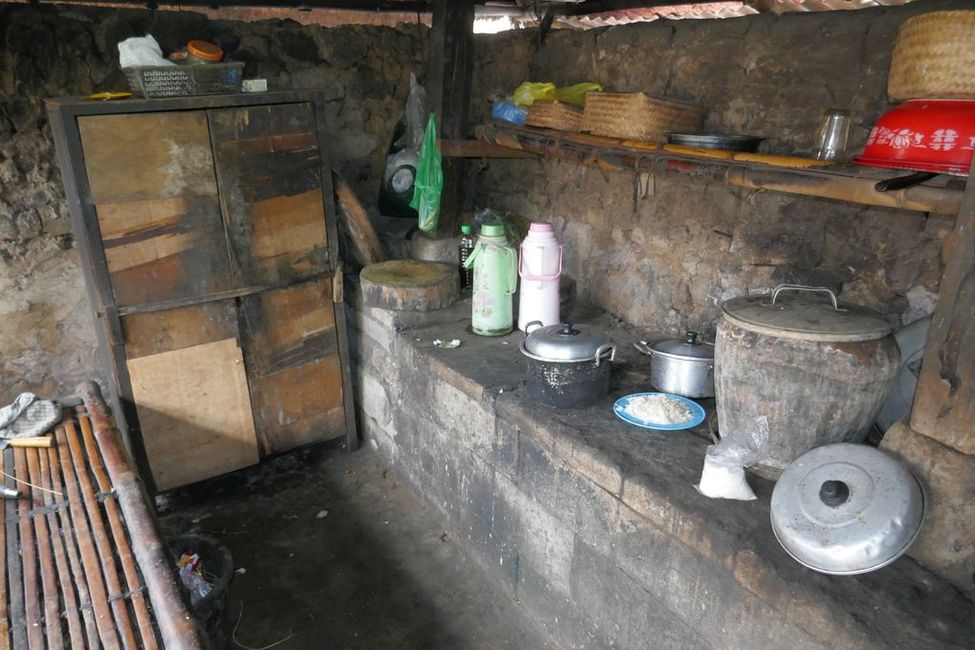
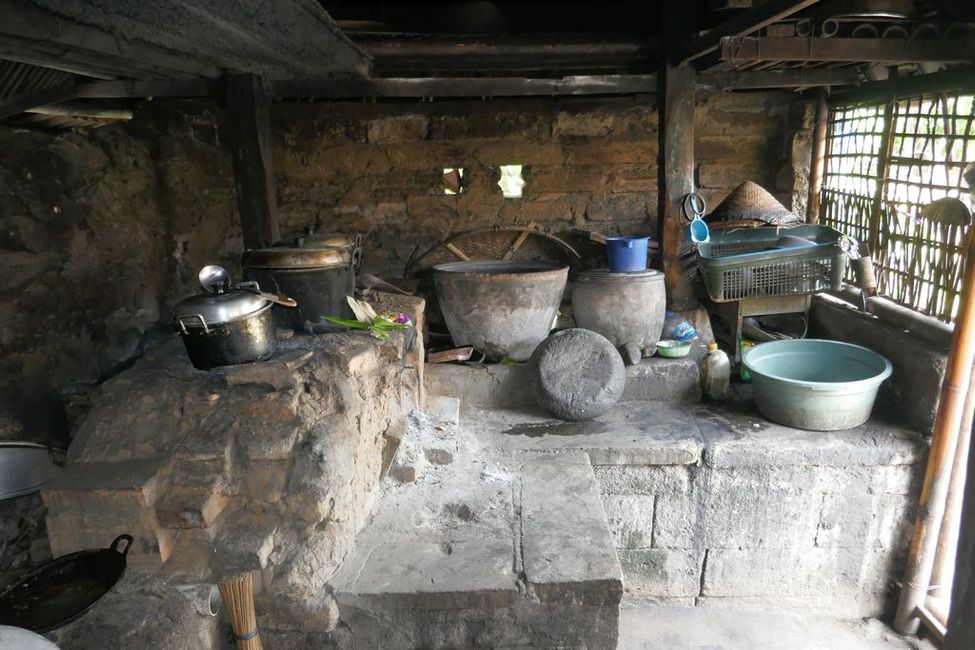
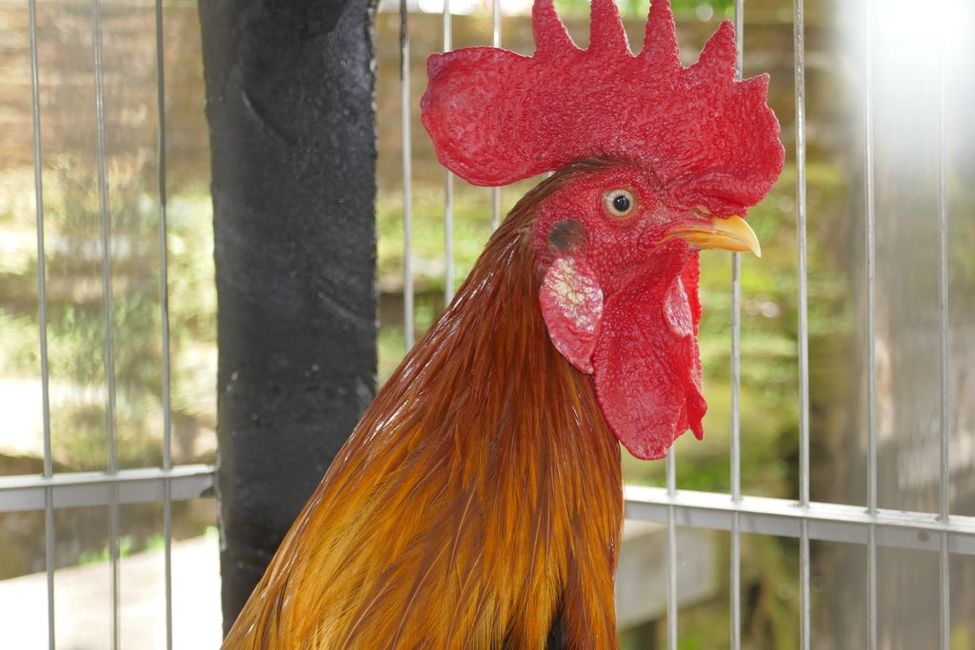
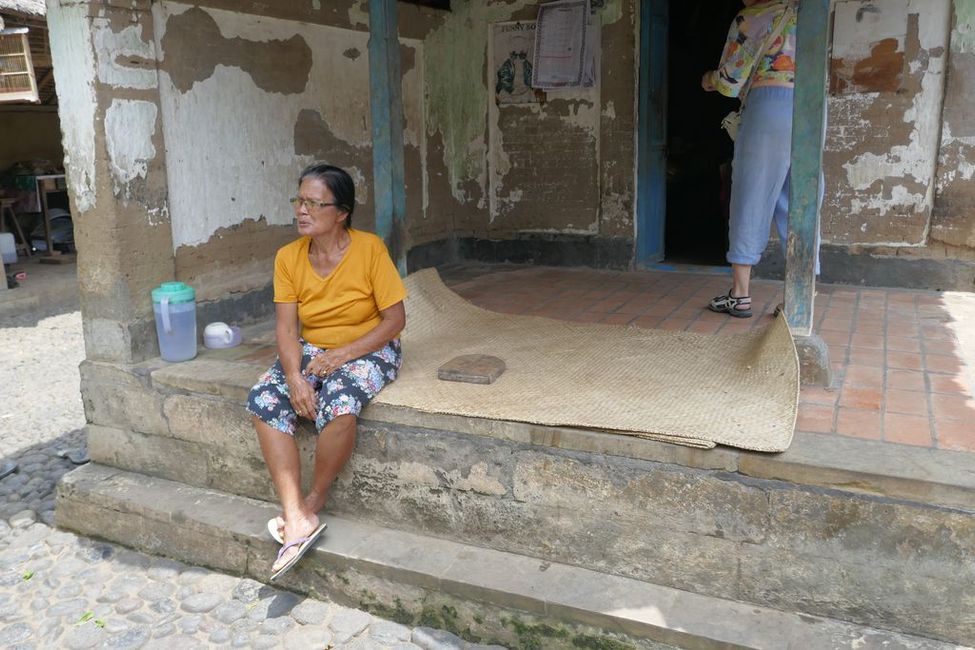
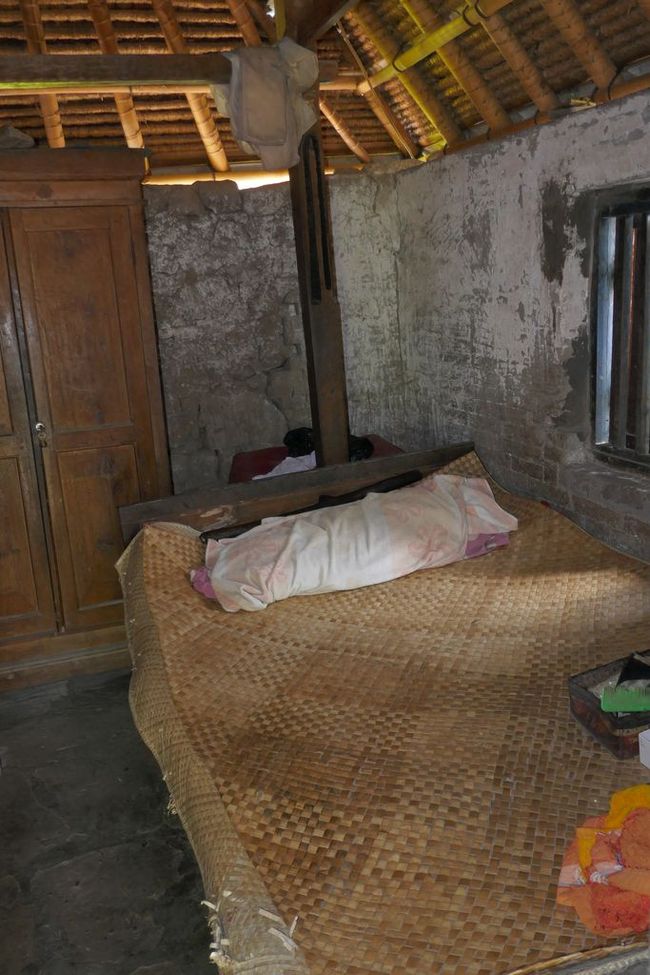
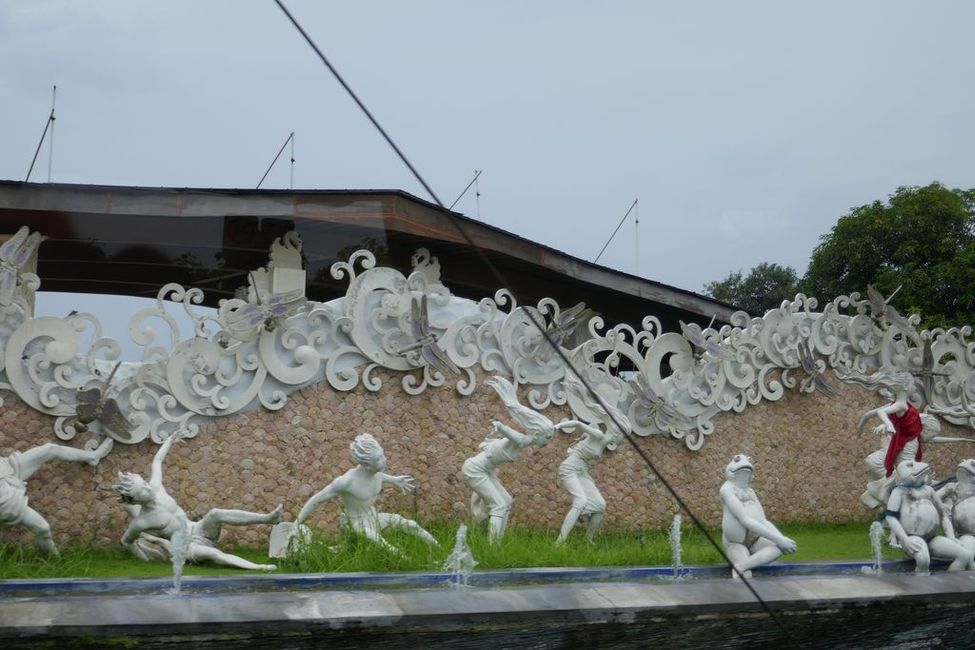
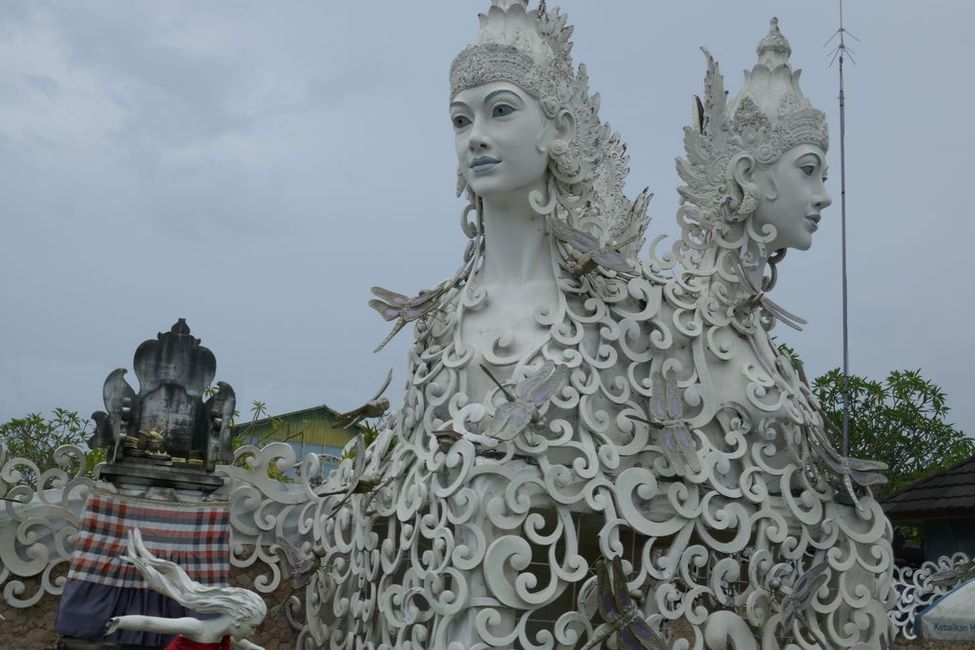
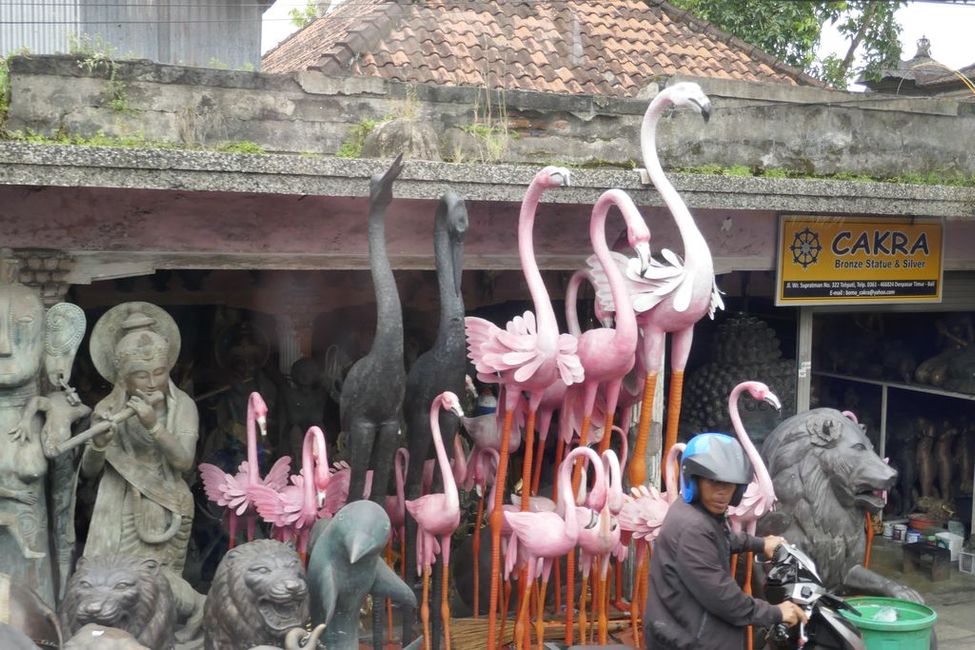
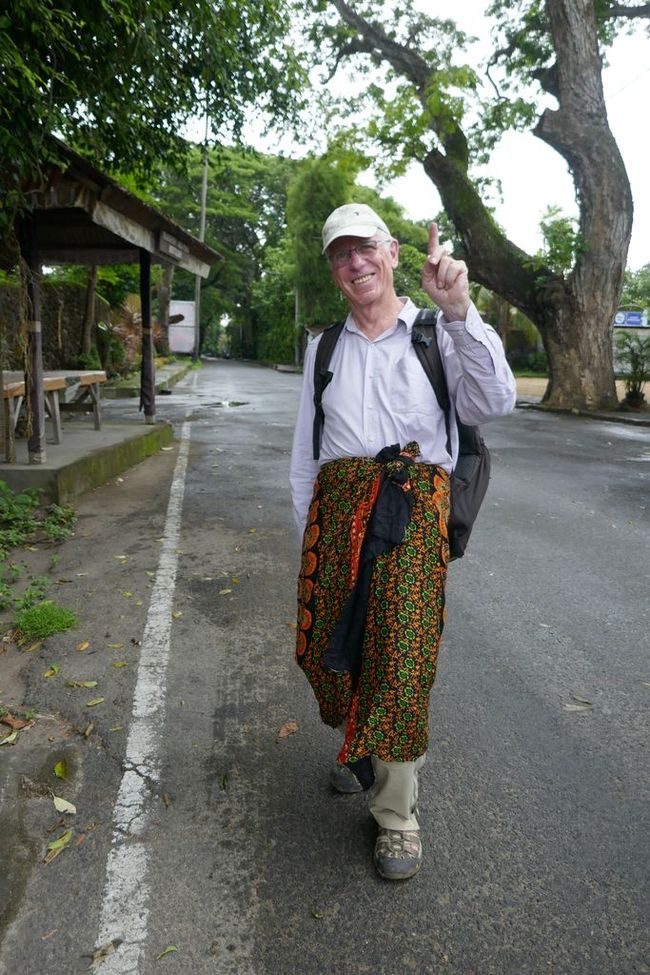
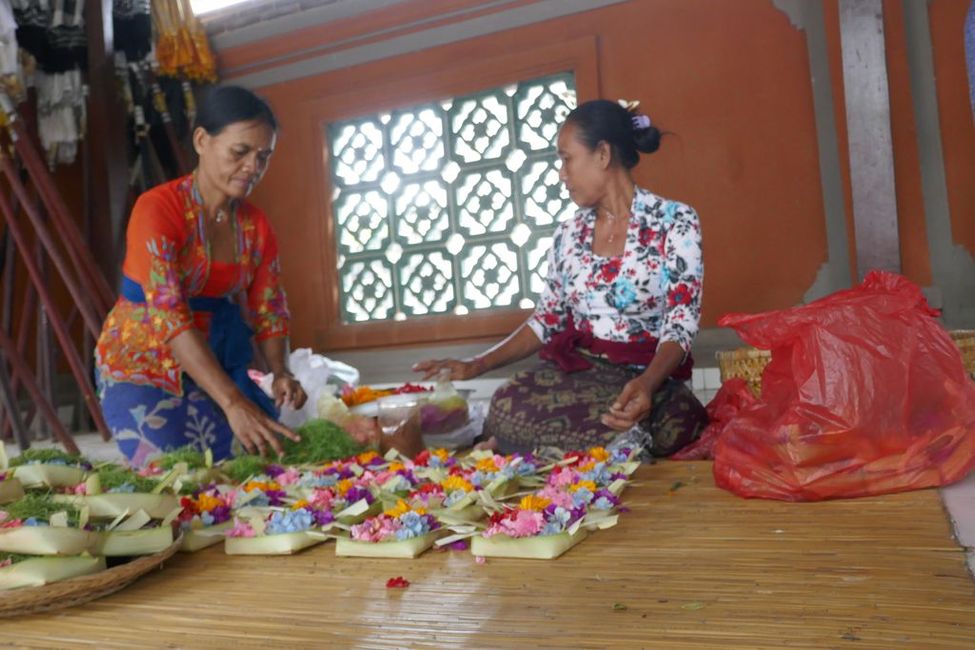
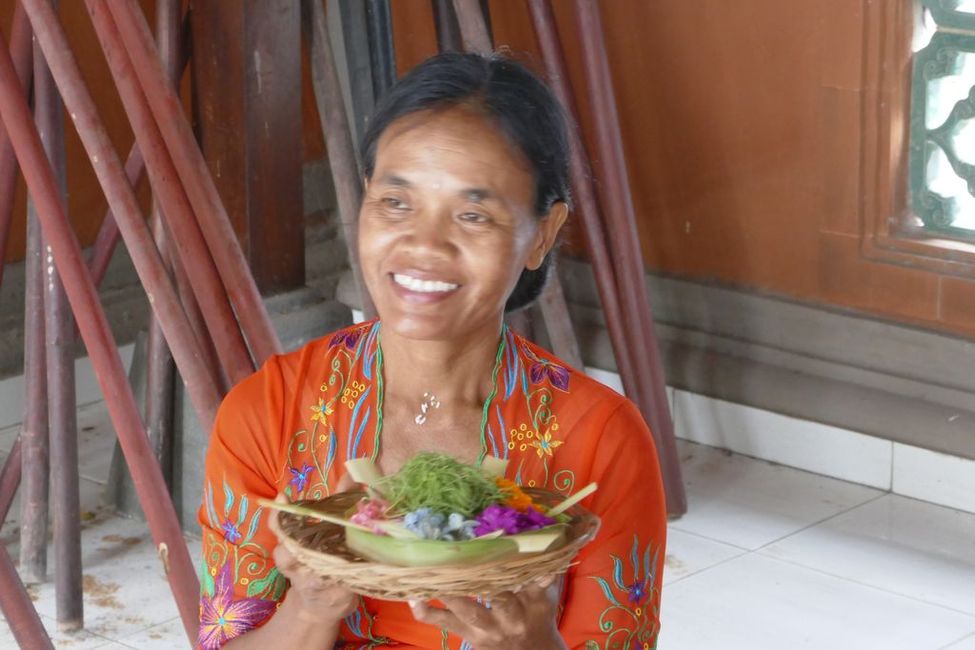
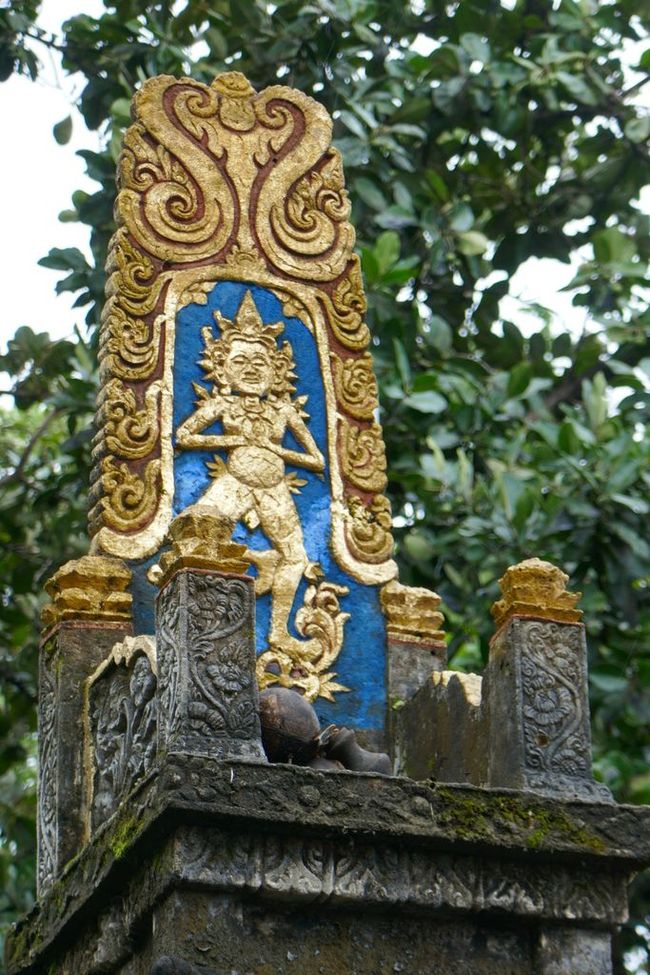
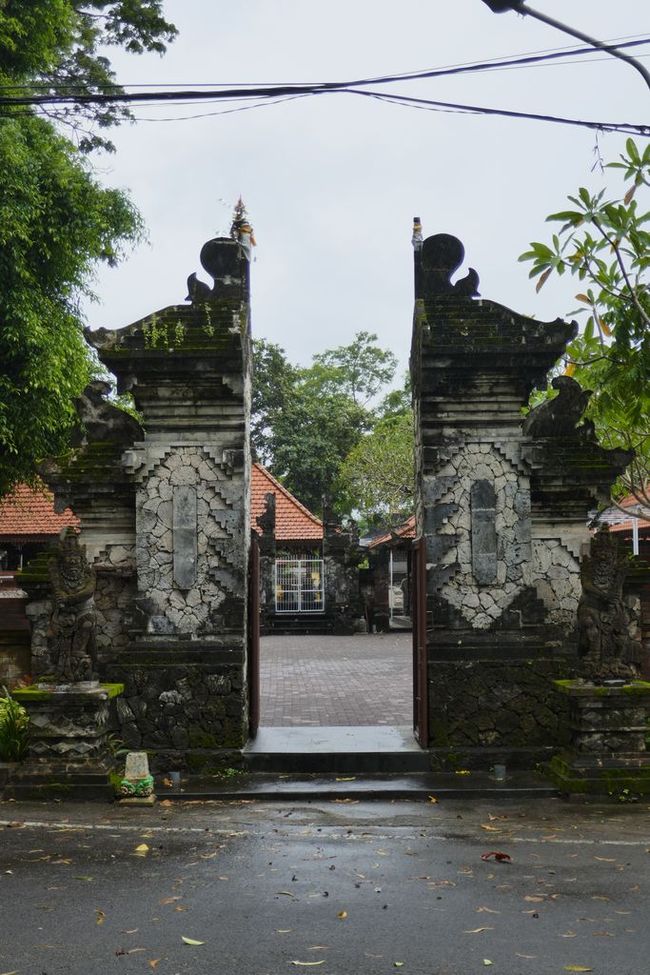
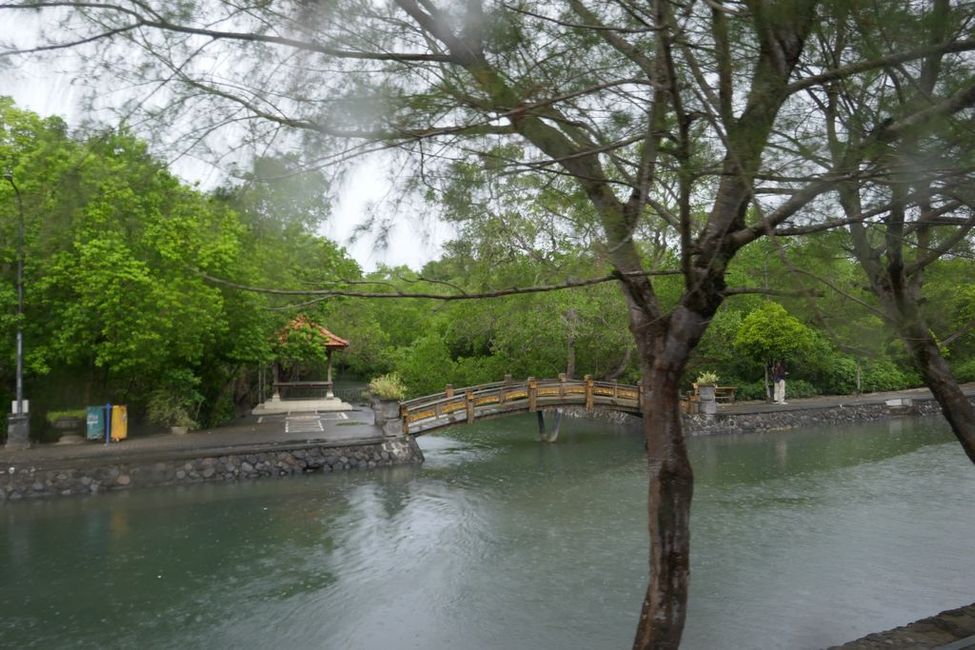
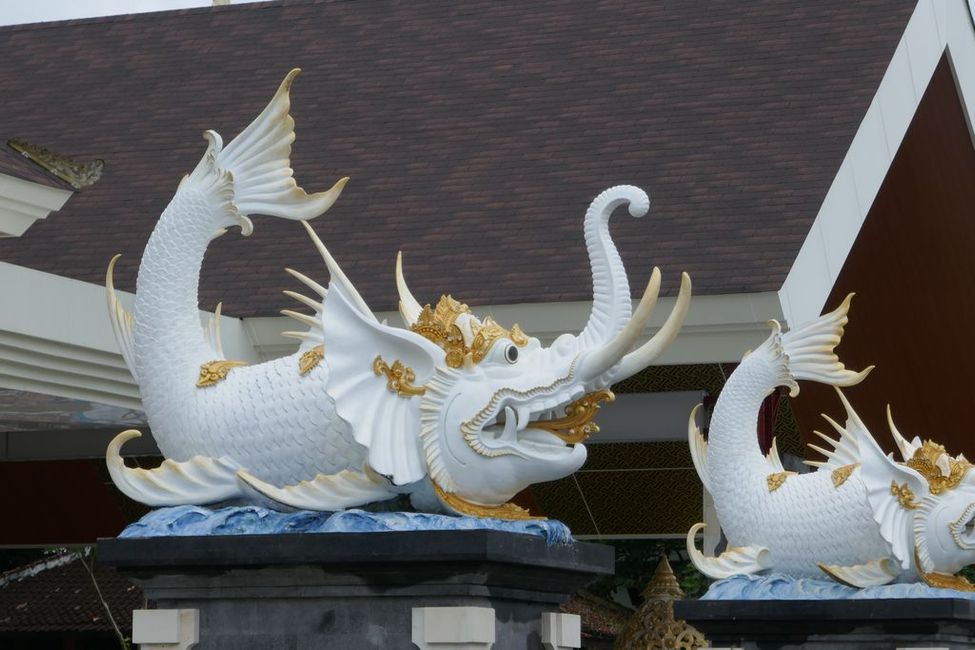
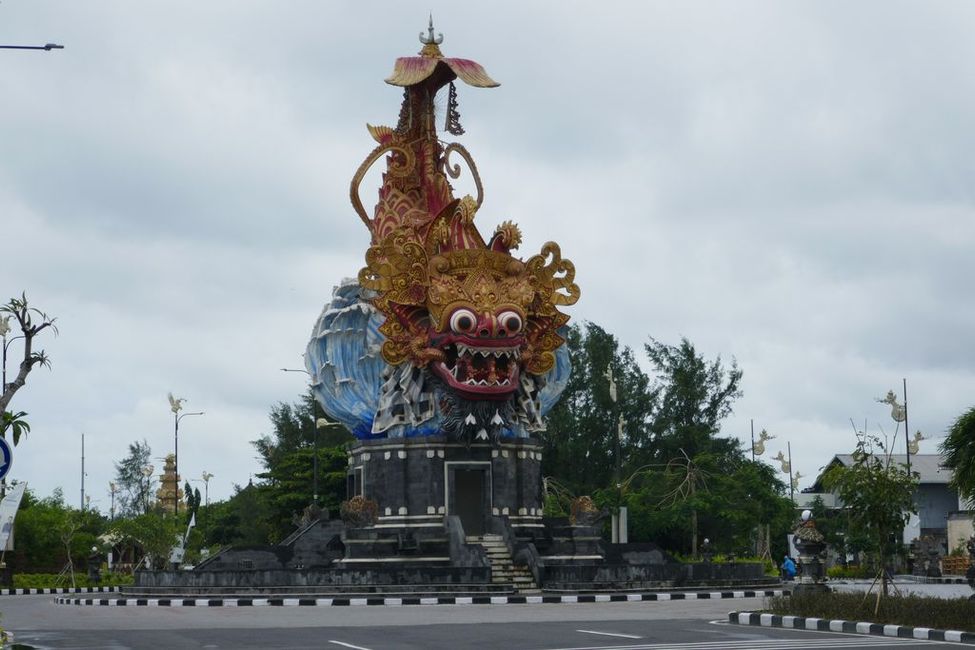
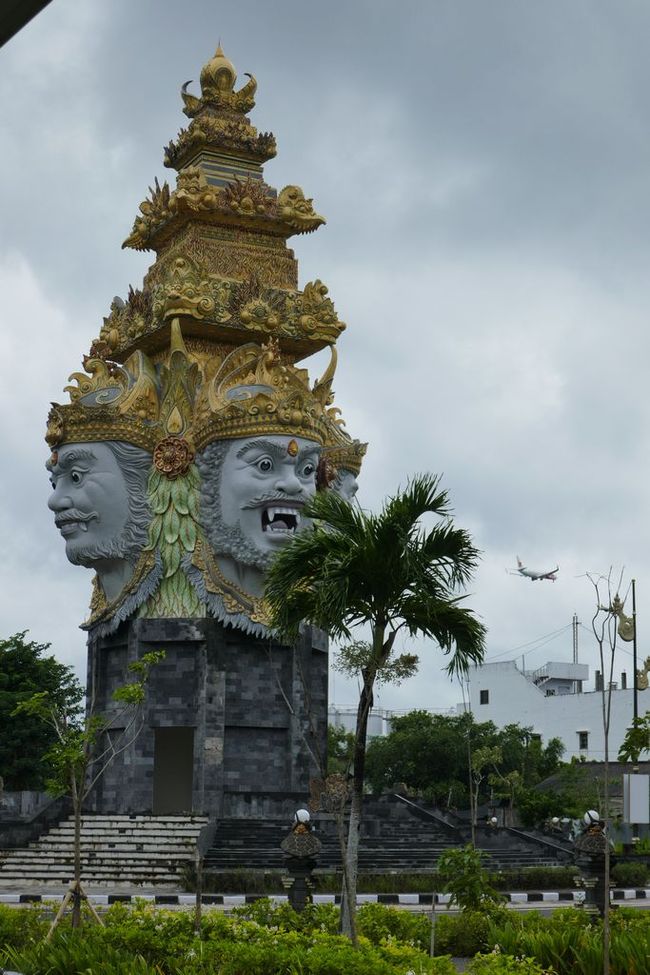
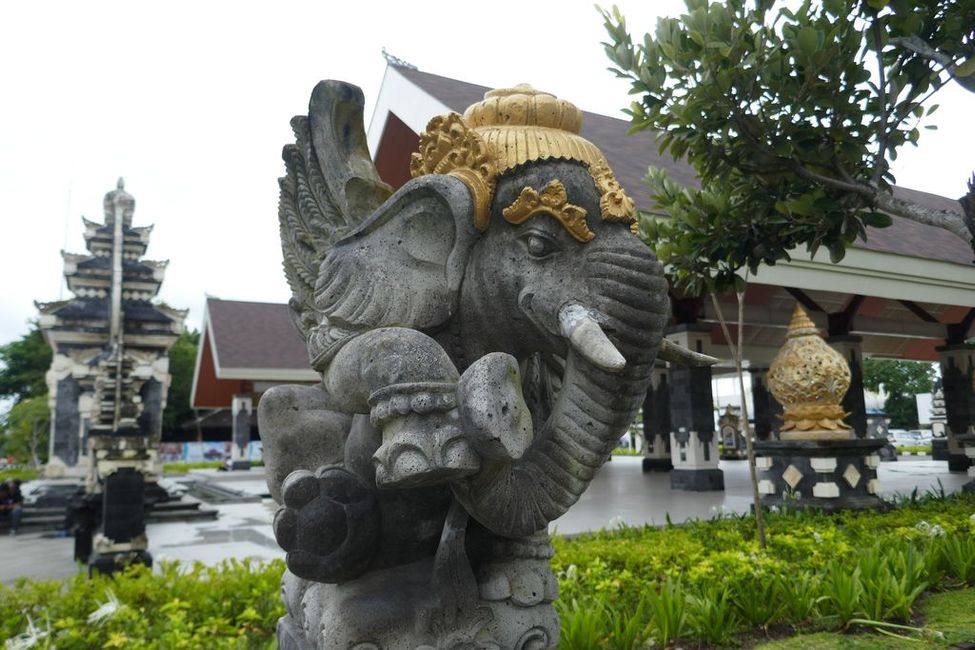
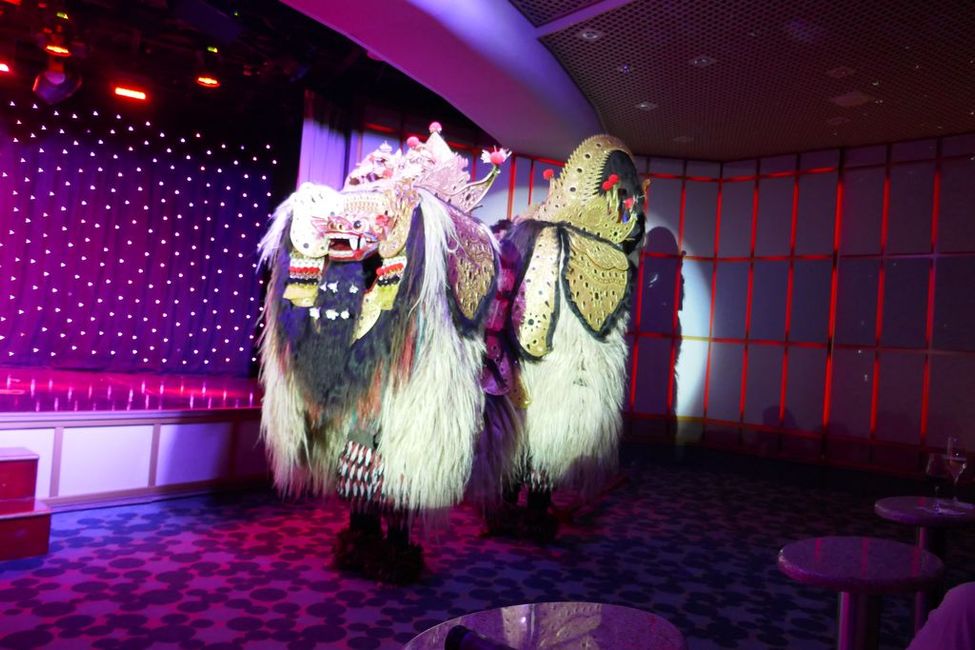
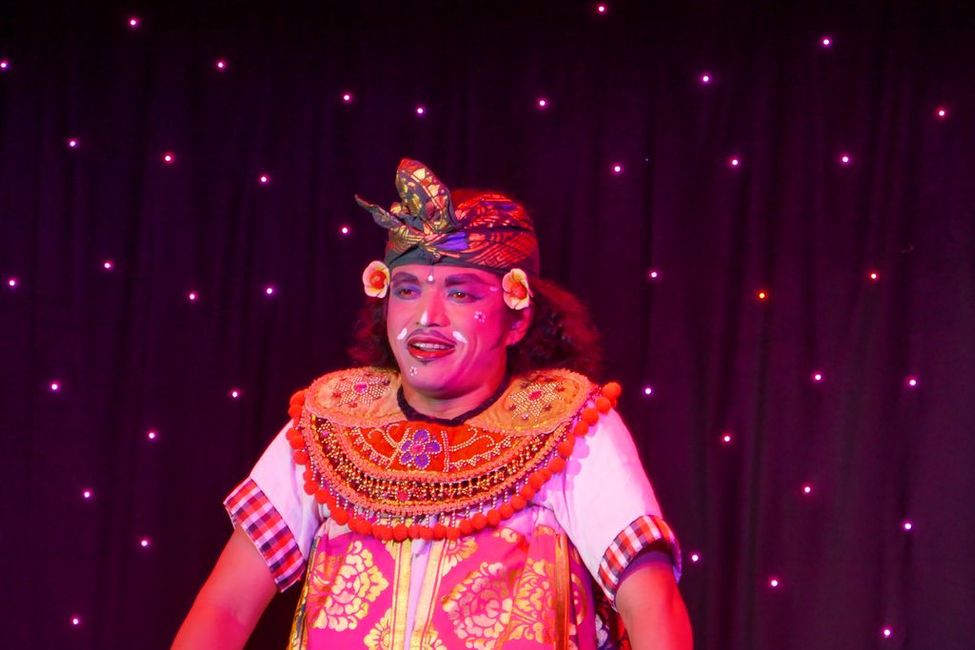
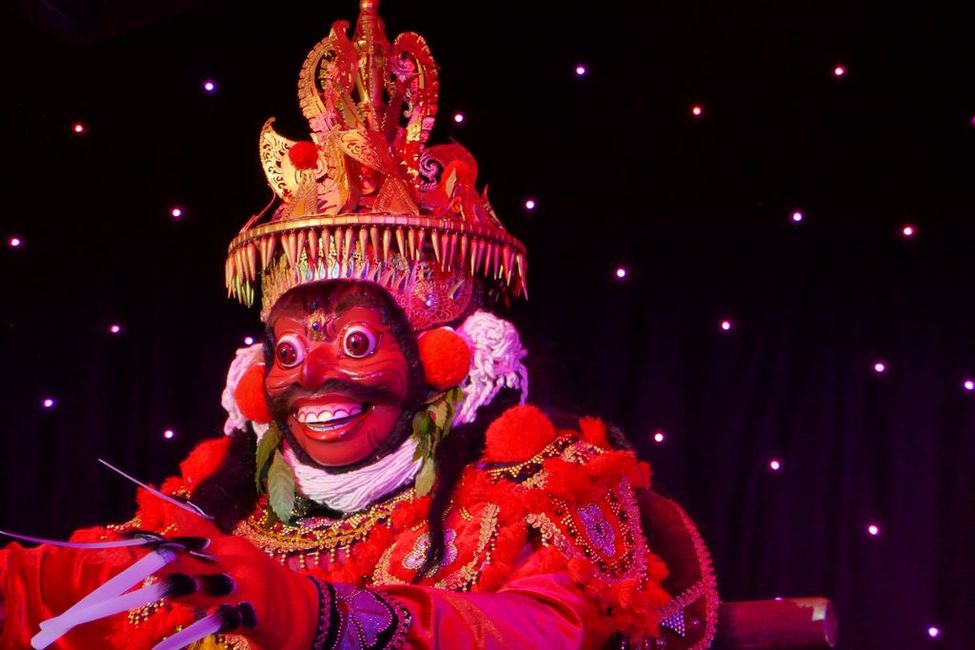
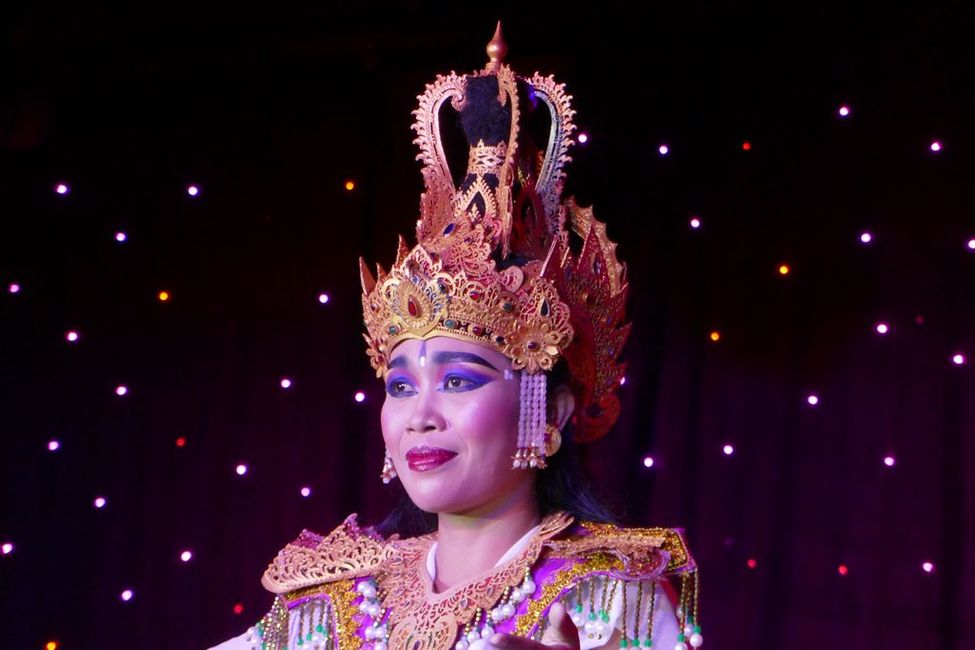
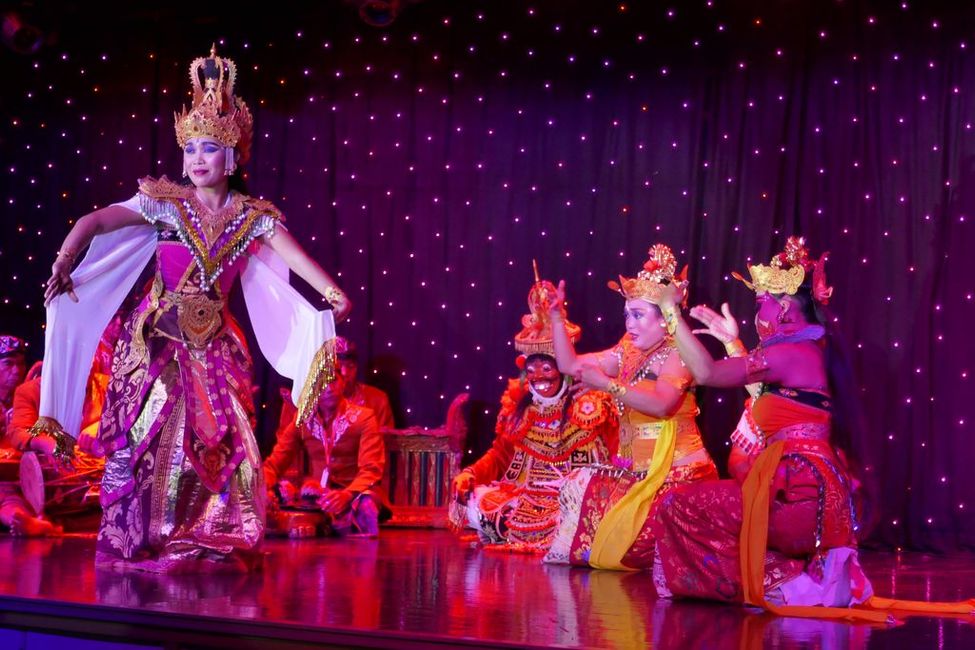
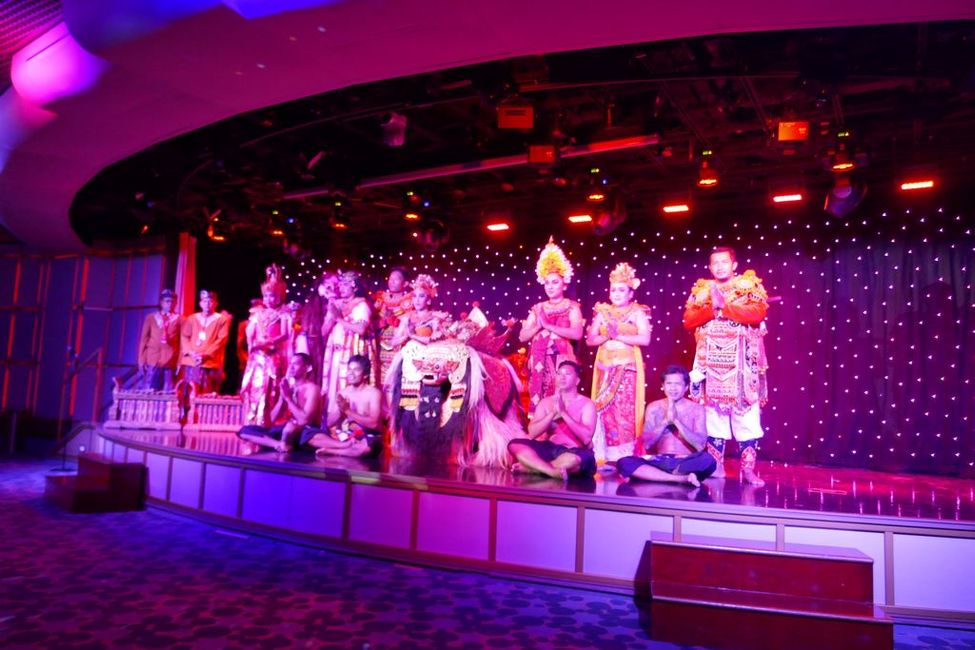
बातमीपत्राचे सदस्य व्हा
When we arrived at the port of Benoa, we were greeted by a Balinese music and dance group. That was already a nice beginning. And it was dry, the sun even came out from time to time.
Our excursion took us north. The traffic at this time was naturally heavy, countless mopeds squeezed their way forward between the cars stuck in traffic.
Although we only traveled by bus, we were able to get a good impression of the villages along the route. The countless temples are really impressive. Almost every family estate has its own temple. And if there is no or only little space for a temple in the city, then it is simply placed on top of the house. A family temple is usually not covered, but rather a collection of several shrines.
Along the way, you also see a lot of ceramic exhibitions where the various figures that are placed in the temples are offered.
Our first stop was a coffee plantation. However, not only regular coffee is produced here, but above all, the apparently famous Luwak coffee. Luwaks are animals, slightly larger than martens. They eat the coffee beans from the bushes, but excrete them undigested. These are then collected, washed, roasted, and ground. The fermentation in the digestive tract of the Luwaks is supposed to make the coffee much milder and smoother.
We tried it, it tasted very good. We were also offered various other types of coffee and tea to taste. It was very sweet, but very tasty.
We then drove to a typical family estate. Such a 'compound' usually consists of several buildings for living, sleeping, and cooking, which are aligned according to a precisely predetermined pattern based on the cardinal directions.
| | Panoramic view can be moved by mouse Click here to enlarge the panorama in a new window |
The family temple is the most important element.
| | Panoramic view can be moved by mouse Click here to enlarge the panorama in a new window |
In contrast to the majority of Indonesia, where almost 90% of the population are Muslims, Hindus are the most frequently represented religious community in Bali, accounting for almost 90%.
This gave us a good overview of the way of life and religion of the rural population, which our guide was able to explain very well.
The last stop was a public temple. Here we could observe women making offering dishes, one of the most important things in Balinese Hinduism. Although it originally comes from India, it has developed in a somewhat independent direction over the centuries.
Afterward, we drove back to the ship. Unfortunately, our berth is far away from any settlement. While the shipping company used shuttle buses in Papua New Guinea to take us from the berth to the nearest larger settlement, this is not allowed in Indonesia. The taxi unions seem to have such a strong influence here that the use of shuttle buses is legally prohibited.
I then set off on foot to walk to the nearest village. But on the way, I encountered some crew members who had turned back because the path leads along the busy highway for about 3 km, which is no fun in the humid heat. So I turned back as well.
Actually, we had hoped to bring back some spices from this trip, but so far, there has been no opportunity. It will probably be the same tomorrow. And then the trip - as far as ports are concerned - will be over.
In the evening, a dance and music group came on board to perform Balinese dances. It is a very exotic experience for our ears and eyes, but an impressive spectacle.
...........................................................................
Weather: hot and humid, feels like 33 °C. Mostly dry during stops, occasional rain while sailing
बातमीपत्राचे सदस्य व्हा
उत्तर द्या
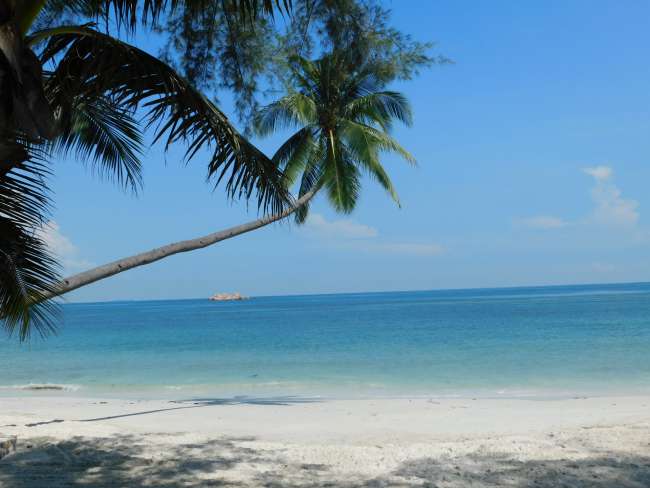
प्रवास अहवाल इंडोनेशिया
